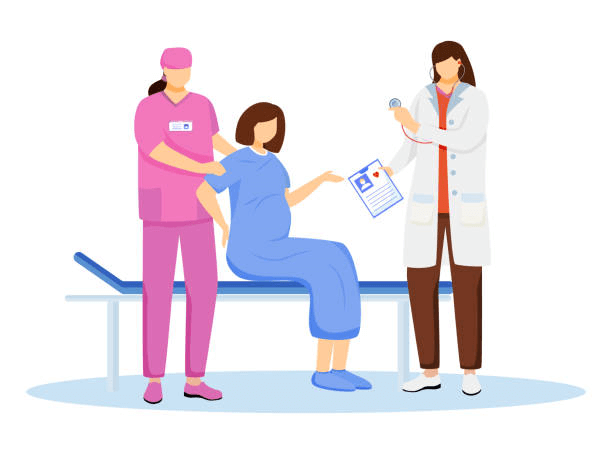What Exactly Is Pregnancy Brain?

Pregnancy brain refers to cognitive changes that many women experience during pregnancy. This includes increased forgetfulness, difficulty focusing, and general mental fog. You might find yourself forgetting where you left your keys, missing appointments, or struggling to concentrate on tasks that used to come easily. While these memory lapses can be frustrating, they’re completely normal.
What Causes Pregnancy Brain?
Several factors contribute to pregnancy brain, and it’s a combination of both biological and lifestyle changes that make this mental fog a real thing. Let’s break down the main culprits:
- Hormonal Shifts: Hormones play a huge role in pregnancy, and the influx of progesterone and estrogen can impact brain function. These hormones help your body adapt to growing a new life, but they can also interfere with concentration and memory.
- Sleep Deprivation and Fatigue: Pregnancy is physically taxing, and many women experience difficulty sleeping, especially as the pregnancy progresses. Poor sleep contributes to forgetfulness and difficulty concentrating. You might wake up feeling exhausted and struggle with mental clarity throughout the day. For more tips on handling fatigue, check out these First Trimester Survival Tips.
- Changes in Brain Structure: There is evidence that pregnancy alters the brain’s structure in ways that prepare you for motherhood. Research shows that certain areas of the brain shrink slightly during pregnancy, likely in preparation for the intense bonding that happens after birth. These changes could affect memory and cognitive function temporarily.
How Hormones Affect Your Brain
Pregnancy is a hormonal rollercoaster. Progesterone and estrogen levels skyrocket during pregnancy, and while they’re critical for maintaining a healthy pregnancy, they can also affect cognitive function. High levels of these hormones are linked to fatigue, mood changes, and yes, forgetfulness.
Progesterone, in particular, can have a sedative effect, making you feel sleepy and sluggish. It’s no wonder concentration can take a back seat during this time!
The Role of Sleep and Fatigue in Pregnancy Brain
As your body works overtime to grow a baby, sleep can become elusive. Between frequent trips to the bathroom, discomfort from a growing belly, and even anxiety about becoming a parent, sleep deprivation becomes a common struggle during pregnancy. Lack of sleep is known to affect memory and cognitive function, and this plays a big part in the pregnancy brain phenomenon.
The first trimester is often the most challenging when it comes to fatigue. Your body is working hard to support your baby’s development, and this can leave you feeling drained. Managing fatigue through a balanced routine, as well as prioritizing rest, can help reduce the fogginess.
Brain Structure Changes During Pregnancy
Believe it or not, your brain physically changes during pregnancy. Research has shown that certain parts of the brain, particularly those associated with social cognition and emotional regulation, actually shrink during pregnancy. This may sound concerning, but it’s thought to help mothers bond with their babies after birth. These brain changes, while temporary, might contribute to the mental fog many women report during pregnancy.
Why You Might Feel More Forgetful
Your brain is constantly shifting focus during pregnancy. You may find yourself focusing more on preparing for the baby and less on tasks that previously occupied your mind. This mental reprioritization could explain why you feel more forgetful. With so much on your plate—doctor’s appointments, planning for baby’s arrival, and adjusting to body changes—it’s natural for your memory to feel overloaded.
How Food Aversions and Nutrition Play a Role
Changes in appetite can also affect your cognitive function. Many pregnant women experience food aversions that make it difficult to maintain proper nutrition. Lack of certain nutrients can affect brain function and contribute to feelings of sluggishness or forgetfulness. It’s important to ensure you’re getting a balanced diet even when certain foods may become unappealing. To learn more about how food aversions impact pregnancy, check out this article on food aversions.
Does Pregnancy Brain Last Beyond Pregnancy?
For many women, pregnancy brain doesn’t last forever. While you might still feel some cognitive fog during the postpartum period, these changes typically start to reverse a few months after giving birth. As your hormones balance out and you adjust to your new routine as a mom, your memory and focus should return to normal.
However, it’s important to remember that every woman’s experience is different. Some may find that symptoms of mommy brain last longer, particularly during the early months of caring for a newborn when sleep is in short supply.
Tips to Manage Pregnancy Brain
While pregnancy brain is normal, there are ways to manage it and stay organized:
- Use Reminders and Lists: Write things down! Whether it’s setting phone reminders or keeping a notebook, lists are your best friend during pregnancy.
- Get Enough Sleep: Prioritize rest whenever possible. Proper sleep helps your brain function more clearly.
- Eat a Balanced Diet: Maintaining good nutrition ensures your brain gets the fuel it needs to stay sharp.
- Stay Active: Gentle physical activity, such as walking or prenatal yoga, can boost mental clarity.
- Ask for Help: Don’t hesitate to rely on family and friends to take some of the mental load off your plate.






